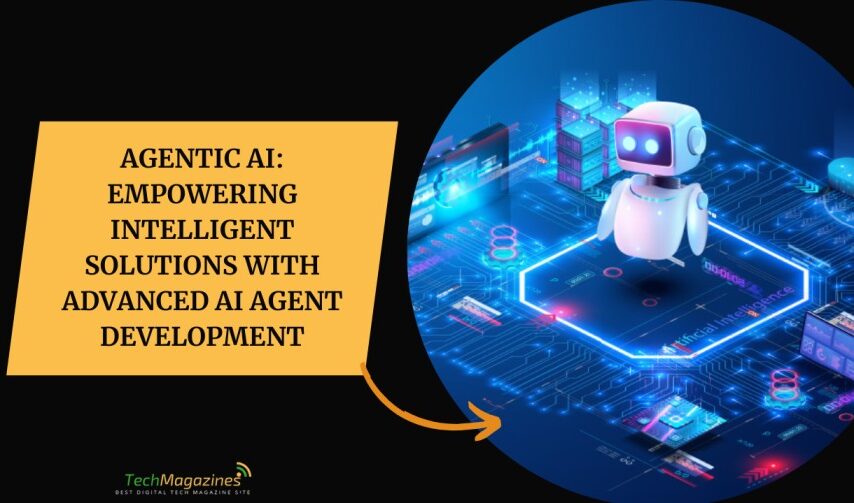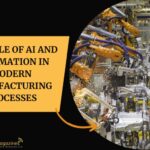As technology advances, the need for more intelligent, flexible systems has increased alarmingly. This is where agentic AI enters the discussion, a groundbreaking approach surpassing conventional models’ possibilities. In contrast to traditional AI, agentic AI works with intention, making choices and negotiating challenging situations with little assistance from humans.
Whether it is redefining sectors like healthcare and banking or improving consumer experiences in retail, agentic AI is rapidly changing the game. However, what precisely is unique about it? What makes companies pay attention? In this blog, we’ll examine the distinctive characteristics of agentic AI and how it will alter intelligent technology in the future.
What exactly is Agentic AI, and why is it important?
A revitalizing development in artificial intelligence, agentic AI is defined as systems that can act on their initiative, adjust to unusual circumstances, and make decisions on their own. Agentic AI is intended to carry out activities, evaluate situations, and make decisions with minimal assistance from others, unlike conventional AI, which frequently requires human input to function.
The core concept behind Agentic AI is the creation of intelligent agents capable of operating in dynamic and complex environments. These agents are not limited to predefined instructions but can learn from experience, adapt to changes, and optimize their actions over time. In the context of AI Agent Development, Agentic AI showcases its ability to address specific tasks while reducing dependency on human intervention, making it a pivotal tool for modern enterprises.
Deconstructing the High-Tech Tools of Agentic AI Agent Development Company and Its Practical Applications
A variety of advanced technologies support agentic AI, allowing for its flexibility and independence. Each technology is essential to guarantee that these intelligent agents can operate successfully in various fields.
Machine Learning
Agentic AI is based on machine learning, enabling systems to recognize patterns in past data and improve over time. By examining massive datasets, agents can find patterns, forecast outcomes, and improve decision-making.
Natural Language Processing
NLP equips agents with the ability to understand and interact with humans through text or speech. This capability is vital for creating seamless communication channels, especially in applications like customer support and virtual assistants.
Reinforcement Learning
This type of learning involves training agents through trial and error, where they receive rewards for desirable outcomes. Reinforcement learning is particularly effective when agents need to navigate complex environments or optimize strategies.
Multi-Agent Systems
In multi-agent systems, multiple agents work together to accomplish a common goal. This technology is mandatory for complex tasks requiring highly coordinated efforts, like emergency assistance or supply optimization.
Varied Classifications of Agents and their Strategic Contributions to Advancing Innovation Across Sectors
A variety of agent kinds, each created to handle particular operational needs and barriers, are included in agentic AI. Let’s have a look:
Reactive Agents
Reactive agents are made to react to external stimuli instantly without remembering previous interactions. Although their efficacy and quickness make them perfect for simple tasks, they are not as well-suited to handling complicated or changing scenarios require adaptability in decision-making.
Deliberative Agents
Deliberate agents use advanced planning and reasoning to decide on the best course of action. They make wise decisions by assessing the situation and predicting what will occur shortly. They are particularly skilled at difficult jobs that require flexibility and strategic thinking.
Hybrid Agents
Hybrid agents combine reactive and deliberative agents’ skills to provide strategic planning and response. They are, therefore, perfect for dynamic settings where prompt action and careful consideration are equally essential.
Collaborative Agents
Collaborative agents share information and coordinate activities with humans or other agents to accomplish common goals. They are critical in team-oriented tasks, guaranteeing effective problem-solving and smooth communication in dynamic settings.
How Agentic AI Redefines Business Strategies and Catalyzes Disruptive Innovations Across Modern Enterprises
Agentic AI is a business modifying accelerator and a technological wonder. It enables businesses to innovate and run more effectively by introducing autonomous systems that manage complicated jobs. Here’s how:
Accelerating Innovation Cycles
Agentic AI streamlines rapid prototyping and iterative development, allowing companies to test, hone, and enhance concepts more effectively. Speeding up innovation cycles minimizes the time it takes for new products to reach the market and promotes faster growth.
Adapting to Complex Ecosystems
Businesses function in ever-more complicated ecosystems in the current environment. Because of its collaborative nature, agentic AI can operate alongside humans, other systems, and agents, making it an invaluable tool for navigating these complex contexts.
Enabling Predictive Insights and Proactive Strategies
Agentic AI is highly skilled at evaluating previous and current data to forecast future trends and difficulties. Due to its actionable insights, businesses can gain a competitive edge in their sector by proactively addressing risks and seizing new possibilities.
Encouraging Collaboration and Seamless Integration
Agentic AI promotes teamwork by cooperating with individual teams, AI models, and other systems. Fostering creativity in networked business environments is essential because its cross-platform integration and good communication guarantee smooth operations.
Interpreting the Disruptive Applications of Agentic AI and Its Impact on Driving Proficiency and Innovation
Agentic AI may be used in various industries because of its adaptability. It continues to have an impact in the following critical areas:
- Vehicles and Robotics: Agentic AI drives creativity and productivity in dynamic applications by enabling autonomous cars, drones, and robots to make real-time decisions, adjust to changing situations, and navigate safely.
- Intelligent Manufacturing Systems: Agentic AI accomplishes production line management, equipment health monitoring, and failure prediction. It makes real-time process adjustments to guarantee smooth operations, cut expenses, and boost output.
- Educational Tools and Adaptive Learning: Agentic AI personalizes learning by assessing student needs, modifying instructional strategies, and monitoring progress. It promotes individualized instruction in classrooms, colleges, and corporate training environments.
- Supply Chain Management: Agentic AI improves logistics by anticipating demand, controlling inventory levels, and guaranteeing on-time delivery. By coordinating across several supply chain nodes, it lowers costs and increases effectiveness.
Mastering the Deployment of Agentic AI to Drive Continuous Innovation and Market Leadership
In order to successfully deploy Agentic AI, companies need to take a calculated strategy. Consider the following best practices:
Select the Right AI Frameworks
Select frameworks for agentic AI, such as PyTorch, TensorFlow, or OpenAI. Pay attention to platforms that facilitate independence, judgment, and flexibility to guarantee stable and expandable AI growth.
Choosing the Right AI Agent Development Company
Collaborate with a professional AI agent development company to develop solutions for the sector. Implementation works under expert supervision, maximizing performance and business requirements.
Ensuring Ethical Standards
Ethical behavior is crucial in AI. To preserve trust, guarantee compliance, and prioritize privacy and security, concentrate on open decision-making, reducing biases, and protecting user data.
Regular Monitoring and Maintenance
AI systems should be regularly monitored to ensure optimal functioning. Frequent updates fix problems, adjust to shifting conditions, and guarantee conformity with changing and corporate objectives.
Projecting the Future of Agentic AI Technological Leadership, and Industrial Growth
- Agentic AI will optimize IoT ecosystems, allowing for smooth device coordination and communication for more intelligent, networked processes.
- Agents will collaborate more successfully, enhancing multi-agent decision-making and using shared information to solve complicated issues.
- Agentic AI will boost productivity, encourage innovation, and produce outcomes superior to humans or AI by fusing human creativity with AI’s accuracy.
- Agentic AI will facilitate autonomous, real-time decision-making across all industries, promoting productivity, adaptability, and more intelligent procedures.
- The focus on moral behavior will increase, guaranteeing that agentic AI systems prioritize accessibility, user privacy, and objective, responsible decision-making.
Conclusion
By creating systems that can act independently, adapt in real time, and make intelligent decisions, agentic AI is revolutionizing artificial intelligence. It improves operational effectiveness, simplifies processes, and successfully empowers companies to handle tricky issues. Its capacity to provide individualized experiences strengthens client bonds, increasing their pleasure and loyalty. Agentic AI enables businesses to make data-driven decisions and proactively address shifting market demands using its predictive capabilities.
Collaborating with Blockchain App Factory is crucial to maximize AI’s capabilities. Professional direction guarantees customized solutions that maintain moral principles and meet business demands. With proper implementation, companies can foster innovation, boost output, and achieve long-term success in a competitive environment.








